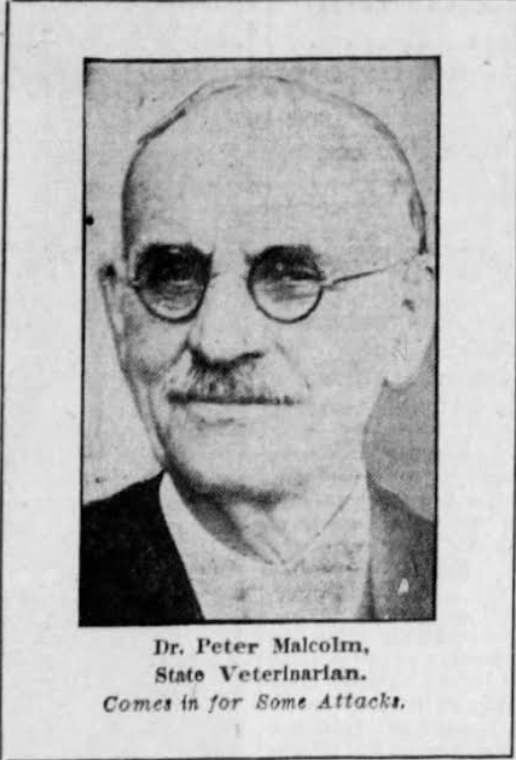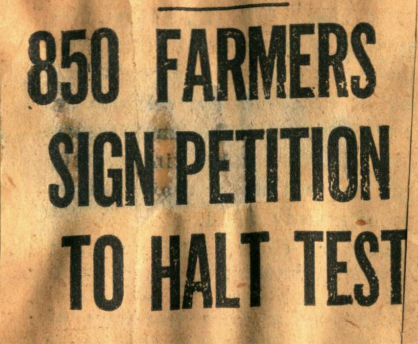
(The Gazette-Republican, September 22, 1931, Grant Munger Collection, State Historical Society of Iowa)
In early 1931, Cedar County farmers devised a plan to subvert testing. When vets showed up, farmers telephoned neighbors, who quickly arrived and blockaded the barn where tests were performed. In response, the vets left and went onto the next farm where they faced similar interference. This occurred repeatedly throughout the spring of 1931.
On April 10, 1931, E.C. Mitchell was the first Cedar County farmer who allowed Bovine TB testing by Dr. Peter Malcolm. The following day, when he encountered seventy-five protestors gathered at the farm, Dr. Malcom left and returned with police protection to read test results. When one of Mitchell's bulls tested positive, the crowd provoked a cattle stampede and forcibly threw Malcolm off the farm, which halted test results.

Protest at E.C. Mitchell's Farm. (Cedar County Historical Society, c. 1931)

(The Gazette-Republican, September 22, 1931, Grant Munger Collection, State Historical Society of Iowa)

(Des Moines Register, April 12, 1931, p.30)
After the confrontation, farmers and state veterinarians were locked in a stalemate. Farmers petitioned the court to halt testing, while at the same time veterinarians requested National Guard protection to complete it within the required three-day time window. In response, Governor Dan Turner assumed responsibility to resolve the dispute by meeting with the farmers.

(Des Moines Register, April 19, 1931, Grant Munger Collection, State Historical Society of Iowa)

(The Evening Gazette and Republican, April 13, 1931, p. 10)
The following day, when Turner and the Cedar County farmers met, they discussed a compromise that would allow testing to continue. Their agreement was contingent upon specific terms being met: farmers could choose who tested their cattle, all state forces and agents would be removed, and Turner would assert his influence over legislative committee voting to pass a bill for optional testing.